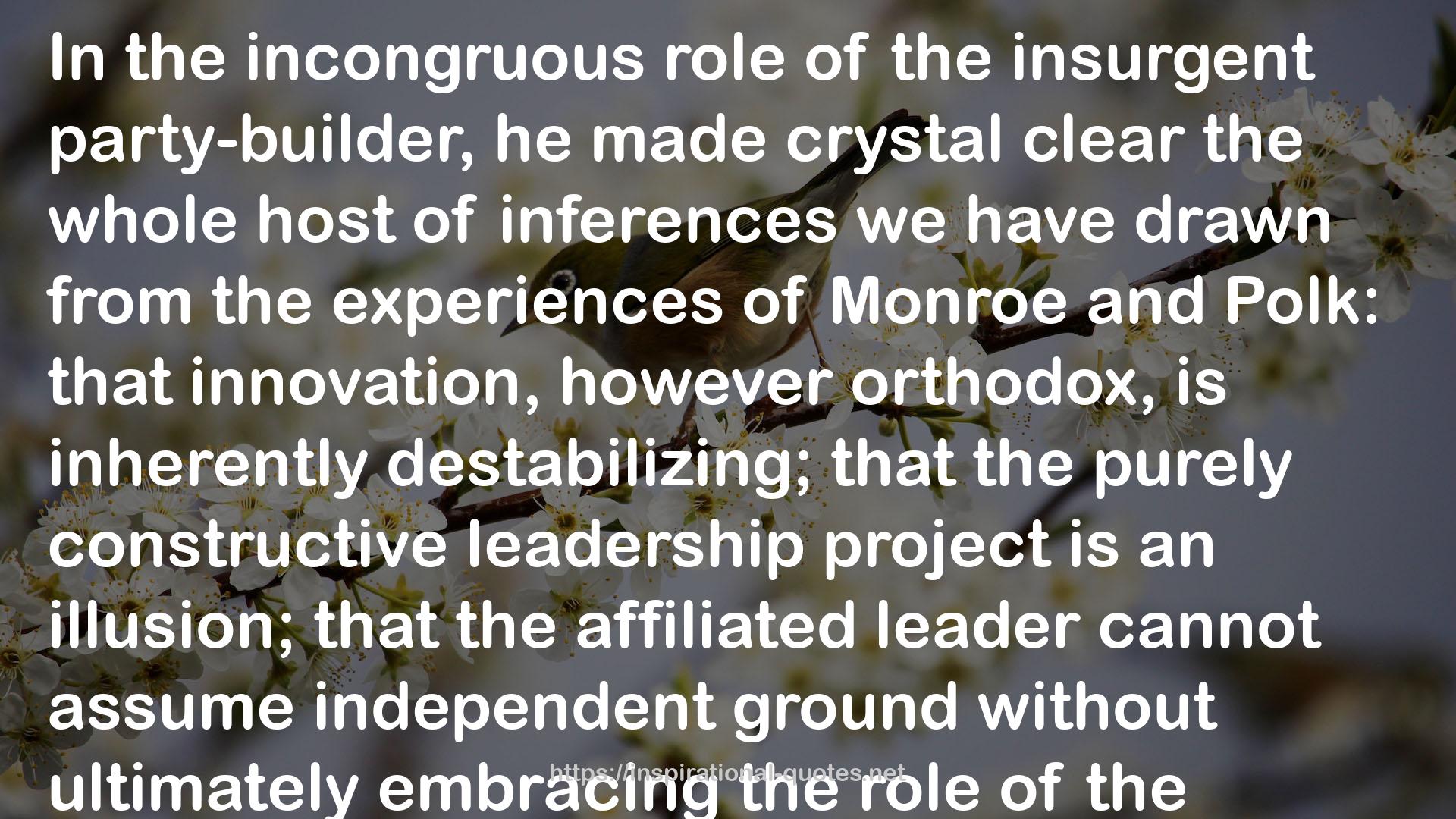QUOTES
1 " In the incongruous role of the insurgent party-builder, he made crystal clear the whole host of inferences we have drawn from the experiences of Monroe and Polk: that innovation, however orthodox, is inherently destabilizing; that the purely constructive leadership project is an illusion; that the affiliated leader cannot assume independent ground without ultimately embracing the role of the heretic; that the only way ever to be president in your own right is to become yourself a great repudiator and set yourself directly against the bulwark of received power; that political disruption parallels presidential significance. Roosevelt's insight was not simply that new achievements do not rest securely on old foundations, but that to save the handiwork of his presidency he would have to reconstruct its political base. "
2 " In truth, there will never be enough power in the presidency for an incumbent to make good on a purely constructive leadership project, and it is unlikely that there will ever be another president stretched so thinly by a determination to use great power to do just that. Lyndon Johnson was a full-service president who had at his disposal an alignment of political resources, economic resources, international resources, and military resources unmatched in the annals of presidential history. The problem is that in a full-service presidency, where no interest of political significance is denied a modicum of legitimacy, resources turn fickle; the exercise of power consumes authority. Committed to a wholly affirmative result, Johnson could not rest content to let anyone carry the brunt of change. "
4 " Carter had diagnosed a political regime in deep trouble, one that would have to alter radically the way it worked in order to meet the problems of the day. Yet, he came to power to rejuvenate that regime rather than repudiate it, to save it rather than destroy it. As the order-affirming and order-shattering dimensions of this project had virtually the same referents, Carter convened a politics in which he could not win for winning. To make his critique credible, he would have to offer potent prescriptions for changing the way government did business. But the more potent his prescriptions, the harder he would have to fight his ostensible allies to secure them; and the harder he had to fight to administer his remedies, the more elusive his case for the vitality of the regime would become. Earnest in the pursuit of his objectives, he could not but drive the disjunction between the regime and the nation beyond repair. The very relationship that Carter sought to carry on with the political establishment served to magnify the problems he had ostensibly come to Washington to resolve. "
5 " If we {Federalists] must have an enemy at the head of government, let it be one whom we can oppose, and for whom we are not responsible, who will not involve our party in the disgrace of his foolish and bad measures. Under Adams as under Jefferson, the government shall sink. The party in the hands of whose chief it shall sink will sink with it—and the advantage will be all on the side of his adversaries. "
6 " If Jefferson's leadership is to be set apart from others similarly situated later on, it should not be because he was inclined to finesse a frontal assault on the old [Federalist] governmental establishment, but because he transformed national politics so thoroughly without being forced into any make-or-break confrontation with it. Jefferson pursued the reconstruction of American government and politics relentlessly, and the regime he created in the end was profoundly different from the one he displaced. Yet, the most remarkable aspect of his transformation is how little resistance he encountered in the process from the institutions and interests previously attached to the old order. Jefferson's authority to reconstruct proved singularly disarming and all-encompassing. "
